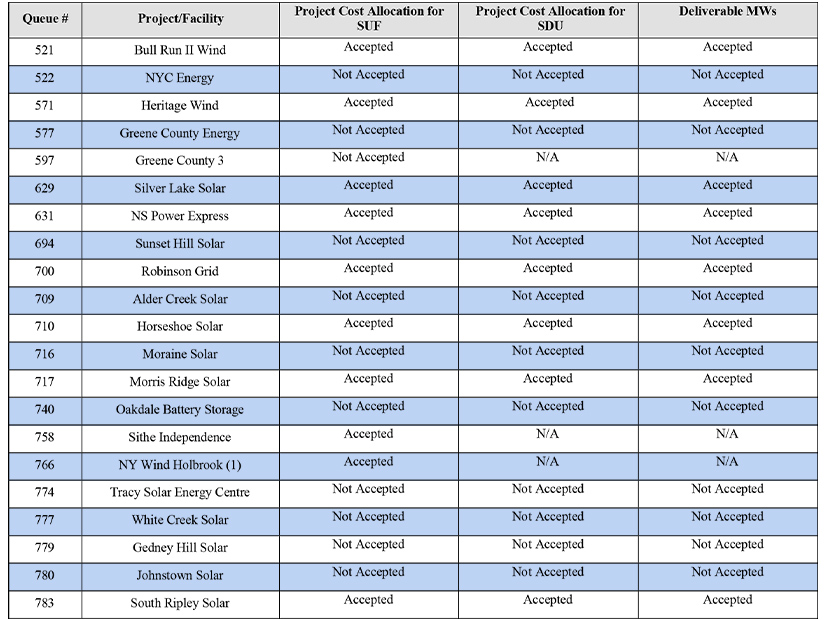NYISO on Tuesday formally announced that the 2023 Class Year (CY23) study was launched with between 80 and 90 projects participating.
Class Year studies assess whether a new resource entering the New York grid would have an impact on reliability and identifies any transmission upgrades necessary to maintain reliability. CY23 officially started on Feb. 13, 30 days after the completion of the CY21. (See “Class Year Updates,” NYISO TPAS Briefs: Jan. 19, 2023.)
The abundance of projects joining CY23 is emblematic of a problem concerning NYISO’s interconnection study processes, which have undergone an unprecedented increase in the volume and complexity of projects since the passage of New York’s aggressive clean energy transition roadmap, the Climate Leadership and Community Protection Act.
NYISO has responded to this challenge by narrowing certain study scopes, considering tariff revisions and adding more staff. (See NYISO Investigating Tariff Changes to Improve Interconnection Processes.)
However, previous delays and the increase in projects requesting interconnection did force some projects to obtain waivers from FERC granting them more time to have their studies approved before being able to participate in CY23. (See “FERC Interconnection Waivers,” NYISO Operating Committee Briefs: Feb. 13, 2023.)
In an episode last month of NYISO’s podcast, “Power Trends,” Zach Smith, vice president of system and resource planning, extolled the ISO’s interconnection process, saying the study’s “core objective is about the reliability of the grid” and ensuring new resources entering the grid will not “degrade the performance of system so that we can keep the lights on and keep the quality of service for all customers in New York.”
Smith acknowledged that NYISO’s studies have become more complex and challenging, both because of the volume of proposals and that many resources rely on new technologies, creating a backlog of nearly 500 projects.
NYISO “recognized that the interconnection process must continue to evolve,” saying in a white paper that the “influx of new projects in the interconnection queue means that additional reforms are needed.”
In an email to RTO Insider, Smith said, “We’re extremely pleased to have launched another Class Year study process.”
“We understand how important the process is to supporting state policy goals and keeping the electric system reliable through the grid in transition.”



